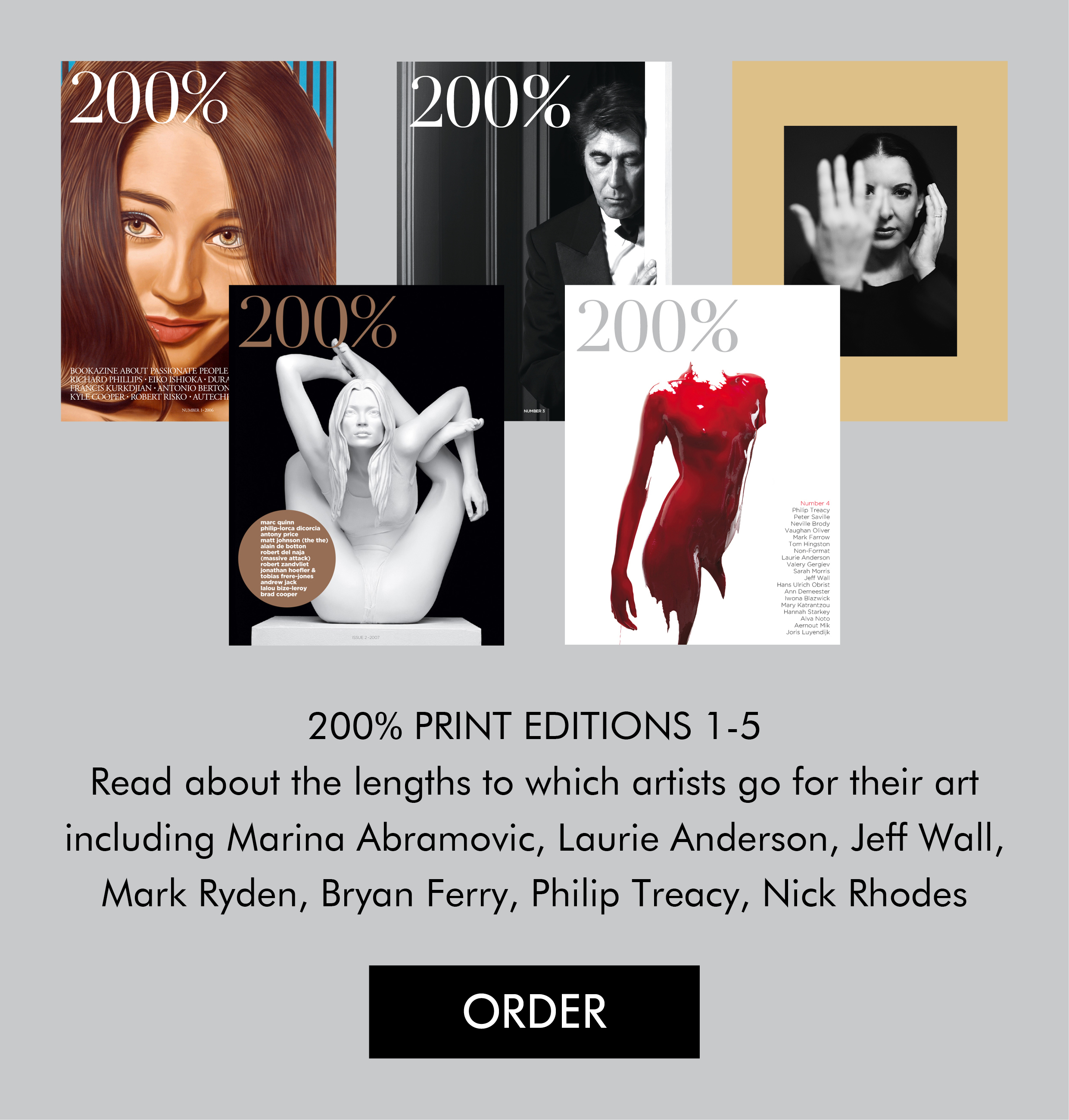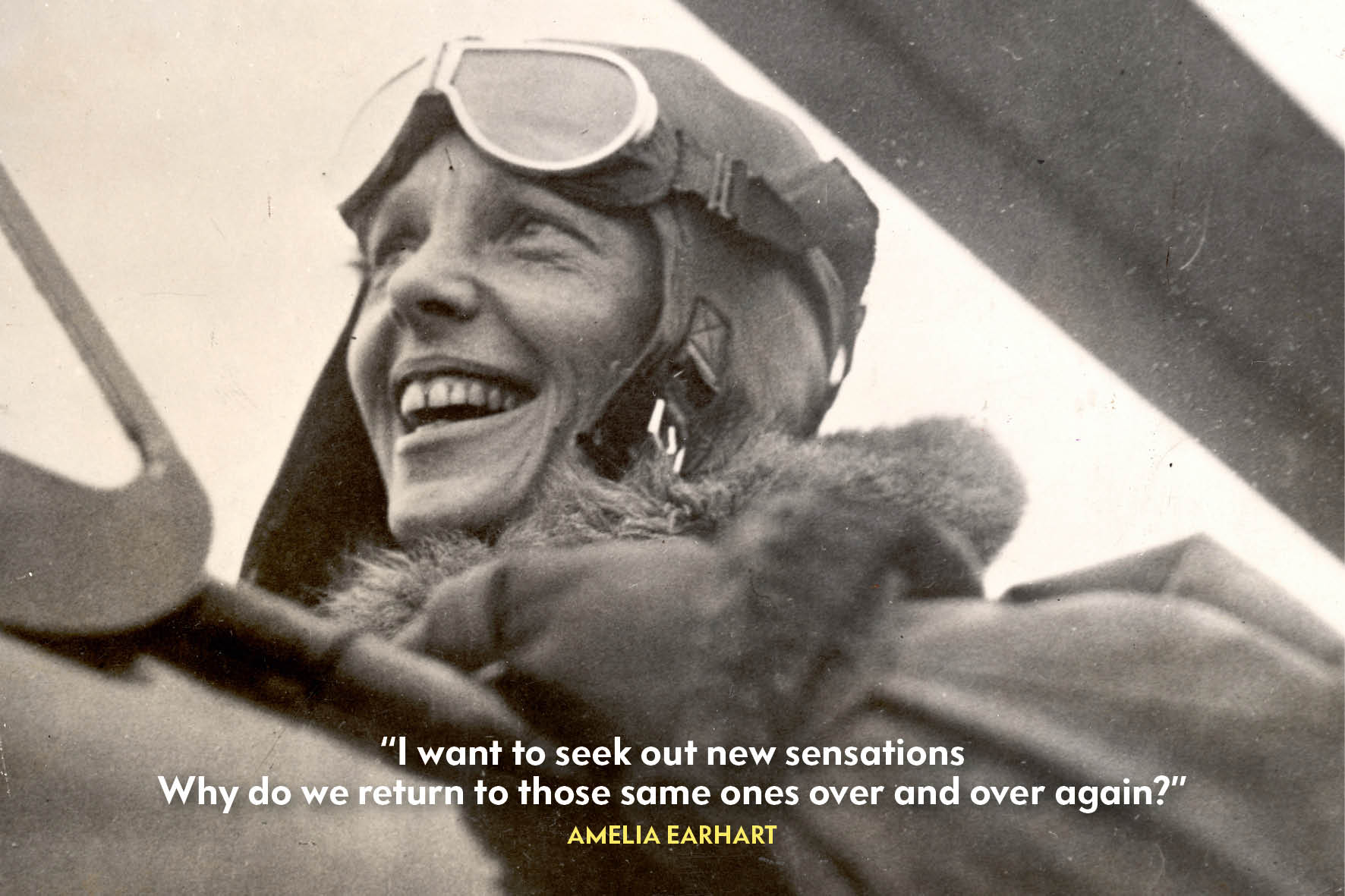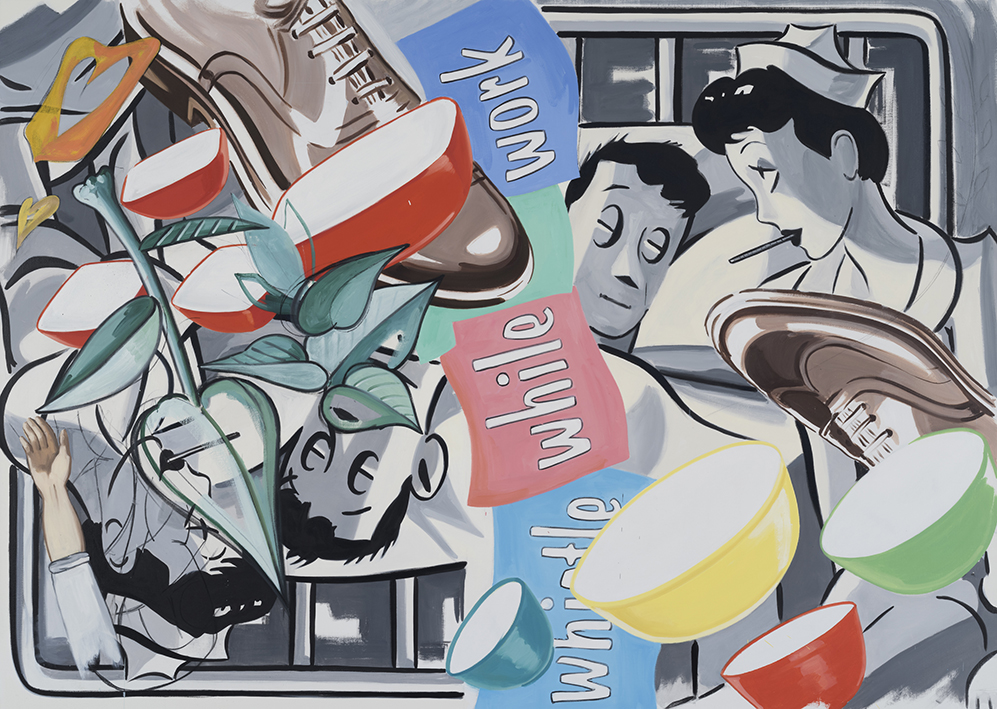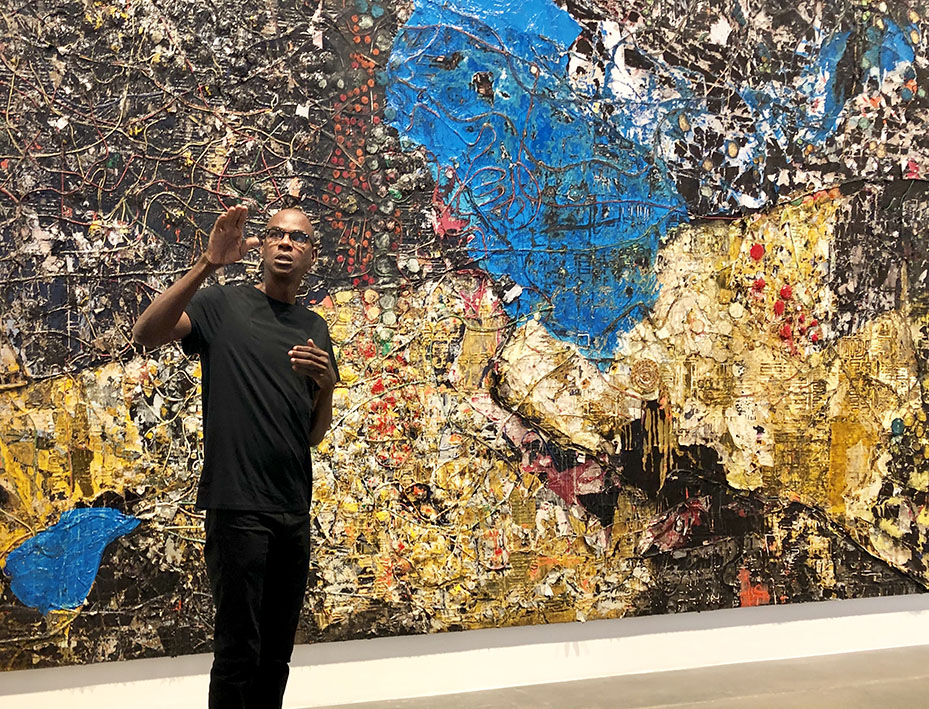 200% has approached a few singers who feature on our play list ‘Spellbinding Voices’ to interview them on their singing voice. Marc Almond is our first interviewee in this series.
In the 1980s, Almond was known as the front man of Soft Cell, a synthpop band he formed with David Ball. Their breakthrough hit single was a cover of ‘Tainted Love’ where the public was introduced to a mix of electronic pop and Almond’s expressive and vulnerable voice.
In this interview the singer, who sometimes sings in a key that’s a touch too high, discusses the contrast between the ‘coldness’ of electronic music and his emotional voice, whether he considers his voice as a gift, and how a motor accident has affected his singing voice.
200%: When did you start singing?
Marc Almond: I started singing when I was young, about 11 or 12, the usual things like being in the school choir or Drama group, but my first solo performance was when I was about 12. We had to write an essay about what we felt it was like to have no home and instead of an essay I chose to sing a song in class, ‘She’s Leaving Home’ by the Beatles. The class was stunned that I dared to do this. It was a risky thing as I could have been taunted and bullied even more than I already was, but instead I got a kind of respect from it, and I liked the feeling.
200%: When did you realise you were a talented singer and had a special voice?
Marc Almond: I think when I first got that respect in class. Later, though, when I was 16/17 in local Bands and I received applause and good comments it occurred to me that maybe I had something to offer.
200%: How would you describe your own singing voice?
Marc Almond: I would describe my voice as more of an expressive voice than a technical one, but I think I have a good tone. I realised that to put a slight flatness in your voice can make it hooky and commercial. Lady Gaga does that brilliantly with some of her hooks and choruses. Also, to sing in a key that’s sometimes a touch too high (Gene Pitney told me that). I think I have a distinctive voice, but I know that it’s been a love hate thing with people. I can be over rich and emotive but its taken me a while to realise less is more.
200%: Part of the music that accompanies your lyrics and voice may sound very clean but your voice seems to add that little ‘emotional dimension’ to it. Do you think that is the task of a singer, or is it something that comes from your performance?
Marc Almond: I think it works well with the coldness of electronic music and an emotional voice. For me, I’m a singer that sings from heart and emotion. Most important for me, though, is to tell a story, to be able to make an audience laugh and cry, and I’ve been able to do both over the years. Frank Sinatra, acknowledged as one of the greatest singers of all time, said “It’s not about technique, it’s all about telling the story and making the audience believe it”. I agree with that. There are many great, technically perfect, singers, usually backing singers.
200%: Do you see your voice as a gift, or is it something that you nurtured, practised and developed over the years?
Marc Almond: A bit of both I suppose. I didn’t take lessons until late 1980s, mostly as I had some breathing problems through childhood, Asthma and Pneumonia (and later made worse by my motorbike crash), and to learn how to last a concert without losing my voice. I’ve been to two, well known, respected, teachers over the years, the now sadly gone Ian Adam and, in recent years, Mary Hammond.
200%: Has your voice changed over the years; if yes how has it changed?
Marc Almond: Your voice naturally changes over the years. Mine has become deeper and I think richer and expressive. It’s not better than it used to be, just different. It means that some songs you used to sing you can’t, or they won’t always sound the same. Some fans would always wish it would stay the same, but it doesn’t and that’s just the way of life and age. I can’t be a pop singer for ever. I wouldn’t want to sing a few of the songs from back then anyway. I’m, in some ways, a different person, as my life has changed – then I was a singer of naivety, now I’m a singer of experience. I have more living to bring to my songs and the cracks in your voice that come with age add a poignancy and realness. My favorite singers are usually those later in their careers that have experienced a lot and have scarred voices.
200%: Whilst you write the lyrics of your songs do you already sing them aloud to see how they work melodically and rhythmically?
Marc Almond: Yes I do, melody lines and rhythms are very important to me.
200%: Are there songs that you have written that are challenging for you to sing in terms of what is required by your voice?
Marc Almond: Not really as I write safely for my voice, although I’m always picking songs by others that are harder for my range or style. I like to aim a little higher than my ability sometimes, it’s a challenge. Recently I’ve been working on a one man modern Opera [Ten Plagues] that’s been composed especially for me. It’s very challenging, but I welcome that. It’s a good thing to still be able to learn things after being in music for a while.
200%: As a singer-songwriter you completely expose yourself, with no filter, or mask. Is being personal what it is about, in that you should write and sing about things that mean something to you, no matter how personal it is?
Marc Almond: I’ve sometimes felt too ‘naked’ and personal in my songs in the past. When I listen to an album like ‘Torment and Toreros’ it scares me. I’ve wanted to retreat from that and sing more songs written by others, about a wider range of things. Also, I can admit that sometimes I think I can come up with a gem or two song wise, but I’m not a natural song writer and others can write the things I want to say better than I. It’s how, though, I’ve communicated my feelings to my listeners. It’s like the Blues, you have to bare your soul sometimes, though not always too much. Mystery and imagination is also important. That’s what makes a Star.
200%: How does your voice express your feelings in your songs?
Marc Almond: I try to lose myself in a song, to try and recall how I felt when I wrote it, or what the writer felt when he or she wrote it as I can relate it to my own feelings and experience. I hate it when people shout out flippant things at my concerts during songs, especially the intimate ones. There are times for it sure, in between songs, and that sometimes can be sweet or funny and break the ice. As I’m easily distracted I find concentrating hard and I can lose the moment easily. Sure there are times when I don’t feel it and act it but that’s the same with any singer I believe. When you’ve sung a song hundreds of times it’s sometimes unavoidable.
Also the Entertainer in me realises that the audience might like to hear a song that I don’t really feel too much for any more. You can’t always be heartfelt and anyone that says they can is not truthful. I bring my mood that day to the stage: it’s important for a singer to share their baggage.
One of the best concerts I saw was Nina Simone at Ronnie Scott’s. She stormed in with her coat on and shopping bag, turned her back on the audience refusing to sing ‘My Baby Just Cares for me’. She played brilliantly with anger for 45 minutes before storming out, shouting that she was going to get a gun and shoot her manager. It was a one off experience with a great singer.
200%: You like music from Arabia, Asia and Eastern music. How much were you influenced by the voices of that geographical area?
Marc Almond: I’m very influenced by Spanish singers and middle Eastern singers, there is a bruised heartfelt emotion in the way they sing. Exotic and sensual. I love the way they use their voices as instruments to wind the melody around the music. And I love the chords in Spanish and Arabic music. My favorite singer of all time is the Turkish singer Saki Murex.
200%: Do you think you sing in a passionate way, like Mediterranean singers?
Marc Almond: I’d like to think so sometimes.
200%: Are the artists you cover your vocal heroes?
Marc Almond: Well Jacques Brea certainly is, he’s a wonderful storyteller who acts his songs and becomes his song’s characters. You can feel the guttural emotion and character in his songs, you understand his song even though he sings in another language. I can say that for a lot of Chanson singers. I usually choose songs because of the words, though, the story they’re telling or what they mean to my life.
200%: We understand you had a terrible motor accident. Has that affected your singing voice?
Marc Almond: My accident caused bad head injuries that even now effect my short term memory, I found it hard to remember even some of my well known songs, let alone new ones. I also had an eardrum punctured that still leaves me with a slight dullness in one ear and bad balance. I had tubing down my throat for two weeks (I was one day away from a tracheotomy), also a collapsed lung that sometimes still makes me feel breathless. All things that singers don’t need. I’ve become better at a lot of things, but it really affected my confidence. I went back to singing lessons to build up my vocal strength. Now I think I’m better than before, though the tone has changed.
200%: Before a performance do you have a singing routine to warm up your voice, for example, singing scales?
Marc Almond: Yes I do some breathing and scales, though I can be lazy on that score, and gargle sometimes with Tea tree oil. Always sucking a Slippery Elm tablet settles the stomach incase of antacid, which effects the vocal chord.
Also read our take on Marc Almond’s voice:
http://200percentmag.wordpress.com/2011/08/15/spellbinding-voices-part-1/
Interview conducted by Thierry Somers and Marcel Harlaar
Picture: Mike Owen
Marc Almond will be on Tour from 16 September http://www.marcalmond.co.uk/
200% has approached a few singers who feature on our play list ‘Spellbinding Voices’ to interview them on their singing voice. Marc Almond is our first interviewee in this series.
In the 1980s, Almond was known as the front man of Soft Cell, a synthpop band he formed with David Ball. Their breakthrough hit single was a cover of ‘Tainted Love’ where the public was introduced to a mix of electronic pop and Almond’s expressive and vulnerable voice.
In this interview the singer, who sometimes sings in a key that’s a touch too high, discusses the contrast between the ‘coldness’ of electronic music and his emotional voice, whether he considers his voice as a gift, and how a motor accident has affected his singing voice.
200%: When did you start singing?
Marc Almond: I started singing when I was young, about 11 or 12, the usual things like being in the school choir or Drama group, but my first solo performance was when I was about 12. We had to write an essay about what we felt it was like to have no home and instead of an essay I chose to sing a song in class, ‘She’s Leaving Home’ by the Beatles. The class was stunned that I dared to do this. It was a risky thing as I could have been taunted and bullied even more than I already was, but instead I got a kind of respect from it, and I liked the feeling.
200%: When did you realise you were a talented singer and had a special voice?
Marc Almond: I think when I first got that respect in class. Later, though, when I was 16/17 in local Bands and I received applause and good comments it occurred to me that maybe I had something to offer.
200%: How would you describe your own singing voice?
Marc Almond: I would describe my voice as more of an expressive voice than a technical one, but I think I have a good tone. I realised that to put a slight flatness in your voice can make it hooky and commercial. Lady Gaga does that brilliantly with some of her hooks and choruses. Also, to sing in a key that’s sometimes a touch too high (Gene Pitney told me that). I think I have a distinctive voice, but I know that it’s been a love hate thing with people. I can be over rich and emotive but its taken me a while to realise less is more.
200%: Part of the music that accompanies your lyrics and voice may sound very clean but your voice seems to add that little ‘emotional dimension’ to it. Do you think that is the task of a singer, or is it something that comes from your performance?
Marc Almond: I think it works well with the coldness of electronic music and an emotional voice. For me, I’m a singer that sings from heart and emotion. Most important for me, though, is to tell a story, to be able to make an audience laugh and cry, and I’ve been able to do both over the years. Frank Sinatra, acknowledged as one of the greatest singers of all time, said “It’s not about technique, it’s all about telling the story and making the audience believe it”. I agree with that. There are many great, technically perfect, singers, usually backing singers.
200%: Do you see your voice as a gift, or is it something that you nurtured, practised and developed over the years?
Marc Almond: A bit of both I suppose. I didn’t take lessons until late 1980s, mostly as I had some breathing problems through childhood, Asthma and Pneumonia (and later made worse by my motorbike crash), and to learn how to last a concert without losing my voice. I’ve been to two, well known, respected, teachers over the years, the now sadly gone Ian Adam and, in recent years, Mary Hammond.
200%: Has your voice changed over the years; if yes how has it changed?
Marc Almond: Your voice naturally changes over the years. Mine has become deeper and I think richer and expressive. It’s not better than it used to be, just different. It means that some songs you used to sing you can’t, or they won’t always sound the same. Some fans would always wish it would stay the same, but it doesn’t and that’s just the way of life and age. I can’t be a pop singer for ever. I wouldn’t want to sing a few of the songs from back then anyway. I’m, in some ways, a different person, as my life has changed – then I was a singer of naivety, now I’m a singer of experience. I have more living to bring to my songs and the cracks in your voice that come with age add a poignancy and realness. My favorite singers are usually those later in their careers that have experienced a lot and have scarred voices.
200%: Whilst you write the lyrics of your songs do you already sing them aloud to see how they work melodically and rhythmically?
Marc Almond: Yes I do, melody lines and rhythms are very important to me.
200%: Are there songs that you have written that are challenging for you to sing in terms of what is required by your voice?
Marc Almond: Not really as I write safely for my voice, although I’m always picking songs by others that are harder for my range or style. I like to aim a little higher than my ability sometimes, it’s a challenge. Recently I’ve been working on a one man modern Opera [Ten Plagues] that’s been composed especially for me. It’s very challenging, but I welcome that. It’s a good thing to still be able to learn things after being in music for a while.
200%: As a singer-songwriter you completely expose yourself, with no filter, or mask. Is being personal what it is about, in that you should write and sing about things that mean something to you, no matter how personal it is?
Marc Almond: I’ve sometimes felt too ‘naked’ and personal in my songs in the past. When I listen to an album like ‘Torment and Toreros’ it scares me. I’ve wanted to retreat from that and sing more songs written by others, about a wider range of things. Also, I can admit that sometimes I think I can come up with a gem or two song wise, but I’m not a natural song writer and others can write the things I want to say better than I. It’s how, though, I’ve communicated my feelings to my listeners. It’s like the Blues, you have to bare your soul sometimes, though not always too much. Mystery and imagination is also important. That’s what makes a Star.
200%: How does your voice express your feelings in your songs?
Marc Almond: I try to lose myself in a song, to try and recall how I felt when I wrote it, or what the writer felt when he or she wrote it as I can relate it to my own feelings and experience. I hate it when people shout out flippant things at my concerts during songs, especially the intimate ones. There are times for it sure, in between songs, and that sometimes can be sweet or funny and break the ice. As I’m easily distracted I find concentrating hard and I can lose the moment easily. Sure there are times when I don’t feel it and act it but that’s the same with any singer I believe. When you’ve sung a song hundreds of times it’s sometimes unavoidable.
Also the Entertainer in me realises that the audience might like to hear a song that I don’t really feel too much for any more. You can’t always be heartfelt and anyone that says they can is not truthful. I bring my mood that day to the stage: it’s important for a singer to share their baggage.
One of the best concerts I saw was Nina Simone at Ronnie Scott’s. She stormed in with her coat on and shopping bag, turned her back on the audience refusing to sing ‘My Baby Just Cares for me’. She played brilliantly with anger for 45 minutes before storming out, shouting that she was going to get a gun and shoot her manager. It was a one off experience with a great singer.
200%: You like music from Arabia, Asia and Eastern music. How much were you influenced by the voices of that geographical area?
Marc Almond: I’m very influenced by Spanish singers and middle Eastern singers, there is a bruised heartfelt emotion in the way they sing. Exotic and sensual. I love the way they use their voices as instruments to wind the melody around the music. And I love the chords in Spanish and Arabic music. My favorite singer of all time is the Turkish singer Saki Murex.
200%: Do you think you sing in a passionate way, like Mediterranean singers?
Marc Almond: I’d like to think so sometimes.
200%: Are the artists you cover your vocal heroes?
Marc Almond: Well Jacques Brea certainly is, he’s a wonderful storyteller who acts his songs and becomes his song’s characters. You can feel the guttural emotion and character in his songs, you understand his song even though he sings in another language. I can say that for a lot of Chanson singers. I usually choose songs because of the words, though, the story they’re telling or what they mean to my life.
200%: We understand you had a terrible motor accident. Has that affected your singing voice?
Marc Almond: My accident caused bad head injuries that even now effect my short term memory, I found it hard to remember even some of my well known songs, let alone new ones. I also had an eardrum punctured that still leaves me with a slight dullness in one ear and bad balance. I had tubing down my throat for two weeks (I was one day away from a tracheotomy), also a collapsed lung that sometimes still makes me feel breathless. All things that singers don’t need. I’ve become better at a lot of things, but it really affected my confidence. I went back to singing lessons to build up my vocal strength. Now I think I’m better than before, though the tone has changed.
200%: Before a performance do you have a singing routine to warm up your voice, for example, singing scales?
Marc Almond: Yes I do some breathing and scales, though I can be lazy on that score, and gargle sometimes with Tea tree oil. Always sucking a Slippery Elm tablet settles the stomach incase of antacid, which effects the vocal chord.
Also read our take on Marc Almond’s voice:
http://200percentmag.wordpress.com/2011/08/15/spellbinding-voices-part-1/
Interview conducted by Thierry Somers and Marcel Harlaar
Picture: Mike Owen
Marc Almond will be on Tour from 16 September http://www.marcalmond.co.uk/











